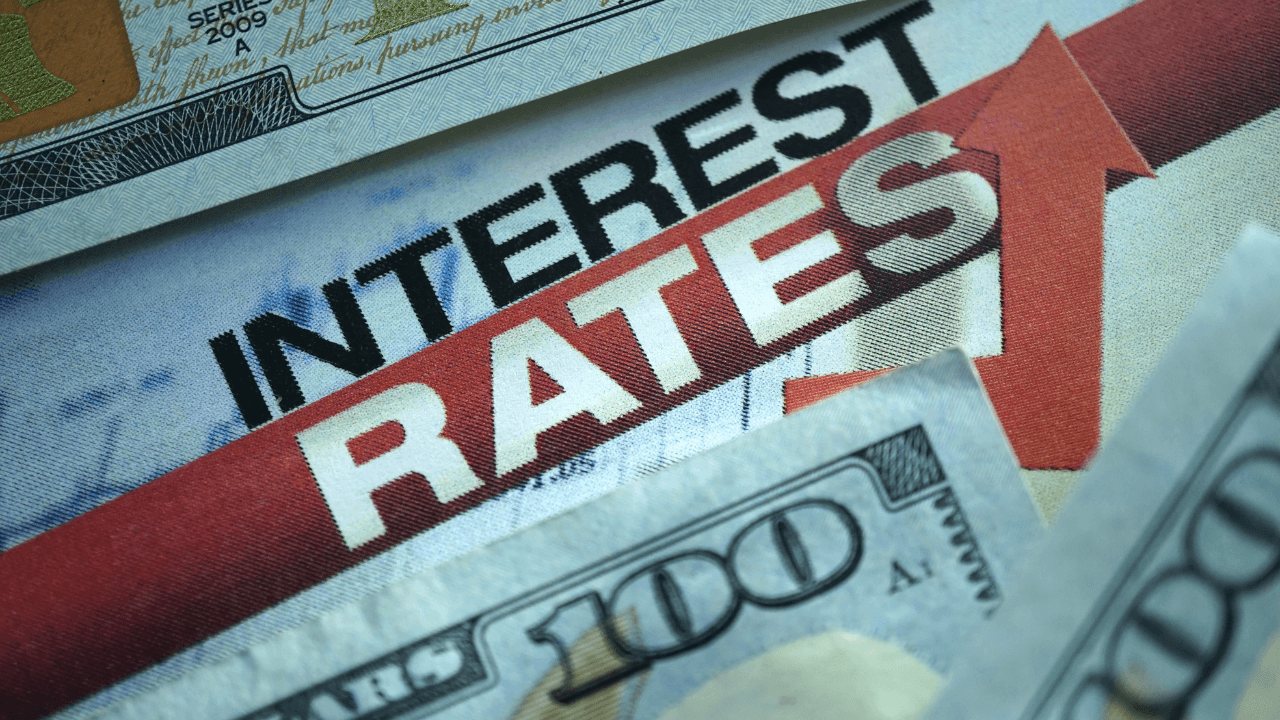Are you an active real estate investor looking to scale your portfolio or dive into apartment building investing?
Maybe you're hesitating because of high interest rates. Many potential investors are on the sidelines, waiting for interest rates to drop before making their move.
But let me tell you something: high interest rates don't matter. Let’s break down why this shouldn’t be a reason to avoid apartment building investing.
Many investors I work with are hesitant about real estate, particularly single-family house rentals, due to high interest rates. They think waiting for rates to come down will get them a better deal. That might be true for single-family houses, but not for apartment buildings.

The Impact of High Interest Rates on Underwriting
When it comes to apartment investing, high interest rates are already factored into the underwriting process. When you’re evaluating a deal, you use a financial model — like the syndicated deal analyzer we use — and you include the high interest rate in your calculations. Here’s how it works:
- Building Interest Rates into Underwriting
You incorporate the high interest rate into your financial model. This means you can’t pay as much as you could have two years ago because the interest rates are higher. This adjustment is similar to accounting for increased insurance costs. You include these expenses in your underwriting and adjust the price you’re willing to pay accordingly.
- Using Fixed-Rate Debt
You secure a fixed interest rate instead of using floating rates, which can increase. This means you’re protected from future rate hikes. You’ve already accounted for the high interest rate in your purchase price, so even if rates rise, your cost of borrowing remains stable.
The Importance of Securing the Right Debt
In today’s market, securing the right debt is crucial. Here’s what you should focus on:
- Fixed-Rate Debt: This protects you from interest rate increases, ensuring your cost of borrowing remains constant.
- Maximizing Loan Proceeds: Aim to get the highest loan-to-value (LTV) ratio possible. Even a 5% increase in leverage can make a significant difference, reducing the equity you need to raise and making your offer more competitive.
Working with a broker is essential for accessing different loan products and navigating the lending market effectively. There’s a lot of movement in lending right now, and having the right connections can make all the difference.
Detailed Analysis: Interest Rates and Apartment Building Investments
Building Interest Rates into Underwriting
When underwriting an apartment building, you need to account for various factors including interest rates, insurance costs, and property taxes. High interest rates directly impact your debt service coverage ratio (DSCR) and your overall return on investment (ROI).
Scenario Analysis
Let’s say you're looking at a property with a projected net operating income (NOI) of $500,000. Two years ago, you might have secured a loan at a 4% interest rate, resulting in an annual debt service of approximately $320,000 on a $5 million loan. Today, with interest rates at 6%, the annual debt service would rise to about $360,000 for the same loan amount.
To maintain a similar DSCR and ROI, you’ll need to adjust your purchase price downward. This might mean offering $4.5 million instead of $5 million, reflecting the higher cost of borrowing. By building these calculations into your underwriting model, you ensure that you're still meeting your investment criteria despite the higher interest rates.
Fixed vs. Floating Rates
Fixed-rate debt provides stability and predictability. With a fixed rate, you lock in your interest rate for the duration of the loan, protecting yourself from market fluctuations. In contrast, floating rates can vary over time, which might expose you to increased costs if rates rise further.
Example
Imagine you acquire a property with a floating rate loan at 5% today, but in two years, the rate increases to 7%. Your annual debt service would increase significantly, potentially jeopardizing your cash flow and ROI. By opting for a fixed-rate loan, you eliminate this risk, ensuring that your debt service remains manageable and predictable.

Leveraging the Market Dynamics
Higher interest rates often lead to lower property values as sellers adjust their expectations. This presents a unique opportunity for investors who are prepared to act.
- Distressed Sales: Some operators may struggle with the increased cost of capital, leading to distressed sales or motivated sellers willing to negotiate on price.
- Off-Market Deals: Networking with brokers and building strong relationships can give you access to off-market deals, which are often more favorable than widely marketed properties.
Strategic Tips for Navigating High Interest Rates
- Strengthen Your Underwriting Skills: Ensure your financial models are robust and account for various scenarios, including further rate increases.
- Focus on Fixed-Rate Debt: Secure fixed-rate loans to protect against future rate hikes.
- Network with Brokers: Build strong relationships with brokers to gain access to exclusive deals and diverse loan products.
- Be Prepared to Act: Monitor the market for buying opportunities, particularly from motivated sellers and distressed assets.
Take Action Now
Don’t wait on the sidelines because of high interest rates. There’s a buying opportunity right now, with sellers adjusting their prices and some distressed assets hitting the market. Start educating yourself, build your team, and network with brokers.
The best deals won’t be found on public platforms like LoopNet—they’ll come through your connections.
To help you get started, I’ve created a free course called Apartments 101. This introduction to syndication doesn’t require any previous real estate experience or a large amount of money in the bank. You’ll learn how to raise capital and invest in apartments effectively.
Check out the free masterclass to kickstart your journey into apartment building investing. Don’t let high interest rates hold you back—start building your path to financial freedom today!